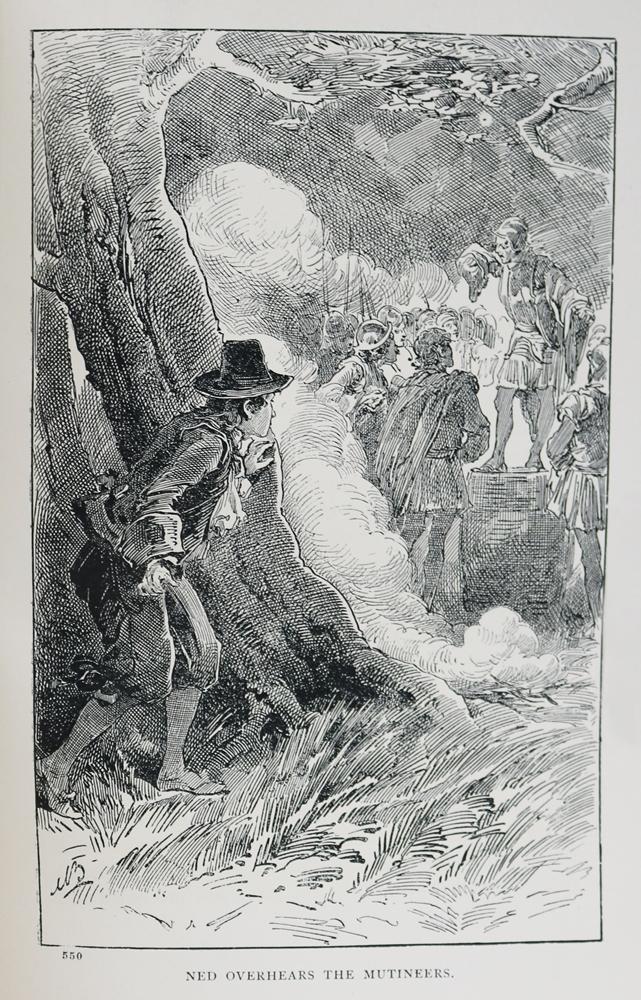Repost from blog, Ballantyne the Brave
Anna and Elizabeth Botkin — August 11, 2008
People often ask us to name the most important books we’ve read—books that have influenced our thinking the most. Our inclination is to list the books that educated and informed our already-matured minds (more impressive titles by well-respected thinkers, theologians and historians). But the truth is that the books that have likely had the strongest effect on who we have become were actually the books we read as children.
Throughout our lives we will become acquainted with many books and authors; some we’ll remember, some we’ll forget. But try as we might, for better or for worse, we can never expunge from our minds the literary images and ideas etched into them in childhood. The concepts, phrases, and characters of children’s literature are imprinted on our memories and become part of our adult consciousness, shaping our patterns of thought and speech, and even our moral sensitivities. Our affections and sentiments are awakened and directed by those books. From them we learn what inspires us—who we dream of becoming.
We live in an exciting time when a new culture of femininity is rising out of the ashes of the feminist movement. Girls are discovering anew the beauty of what it means to be a girl. Parents are gladly accepting the reality that boys and girls are different. Young women are trying to learn the essence of timeless femininity, in the process having to sort through a barrage of images and stereotypes both helpful and harmful.

Conscientious homeschooling parents are becoming ever more careful about putting the right books into the hands of their daughters—books that will point them toward the kind of women they should become. As young women who hope to have daughters of our own someday, we have had to consider the following:
Should girls read books for boys?
Should girls be enthralled by stories of daring escapades, war, and manly heroism?
Should they be reading books that will inspire them with examples they cannot emulate?
The best way we can answer these questions is to turn to Scripture, which alone is “given by inspiration of God, and [is] profitable for doctrine, for reproof, for correction, for instruction in righteousness” (2 Tim 3:16), and contains the principles that should inform our conclusions on such matters as these.
When wondering just how interested girls should be in “boys’ ” things, or what the attitude of femininity toward masculinity should be, it’s important to remember that the woman was created from the man and for the man (1 Cor. 11:9) to be a helper to him in his mission (Gen. 2:18). This is what God created woman for, and is the true essence of femininity: to complement and complete man, to be at his side in taking dominion of the earth—the greatest adventure of all.
Rev. William Einwechter explains,
“The Hebrew word ‘help’ [as in ‘helpmeet’] (ezer) comes from two roots: the first meaning to rescue or save, and the second meaning to be strong. It indicates one who is able (has what it takes) to come to the aid of someone who is in need. Thus, God created the woman so that she would be able to come to the aid of the man and be his support and help.” (from “The Exegetical Defense of Woman as Keeper at Home,” by Rev. William Einwechter
If she is to realize her purpose, she must realize his. And thus it is absolutely in keeping with godly womanhood—imperative, even—for a woman to understand and appreciate men and their world. To live instead in an independent universe of her own, centered around her own autonomous interests, and holding a contemptuous attitude toward the things of men and boys, is actually not feminine, but closer to feminism, no matter how girly the trimmings. It is feminine for girls to be inspired by the manliness of their fathers, brothers and eventually husbands, to appreciate what makes good men tick, and to understand the importance of man’s mission.

Eve was created to help Adam in the mission of taking dominion, and that includes exploration, discovery, adventure, treasure hunting, invention and building new worlds—the stuff boys’ literature used to be made of. It is a pity that those elements rarely entered archaic girls’ literature.
Girls trying to understand their position as women must eschew the false notion that women and men should live in different, pink and blue worlds, with separate interests and disconnected goals. Men and women were created to be different—and those undeniable differences are glorious—but their distinct, complementary roles should work together to achieve one common goal. Women should not live in a “woman’s” world but in the common world of mankind—not as a man, but as a man’s helper—not stepping outside of her role, but understanding its place beside him in his.

Brave, adventurous men need women who have learned this, and who have the intrepidity, courage and sturdy virtue to come alongside them in the rigors of their lives. They also need wives who have a good grasp of such things as current affairs, warfare and politics, and care about the things their husbands are interested and involved in. They need helpers who recognize that loving their men means loving the mission and work their men are called to. The women who helped build America, from the shores of Plymouth to the plains of the Wild West, understood this well.
If we aspire to make our husbands—and sons—great men, we should develop a healthy interest in manhood. We would do well to read lots of books by and about men, to help us become familiar with a man’s way of thinking, prioritizing, communicating and looking at the world. Great men in the past have understood that a thorough, well-rounded course of education for a girl should include studying subjects some considered only for men (politics, war, biblical economics, etc.) and prescribed such for their daughters.
We would add that it is healthy for girls to immerse themselves in books about the rugged, adventurous, real life (for all audiences), remembering that a man’s life of adventure and risk will most likely be shared by a woman.
The Scriptures themselves, written for men and women alike, are filled with the stories of, primarily, men—stories of valor, political intrigue, blood and gore, law, war, judgment, martyrdom, city-building, and epic adventure. (There are also stories of courageous homemakers driving tent pegs through enemies’ heads, and daughters helping their father rebuild the wall of Jerusalem in the face of scoffing and sabotage; of manipulative women being thrown out of windows, and cowardly women, addicted to worldly comforts, being turned into pillars of salt.) Also, girls who neglect the study of theology, politics, or biblical law as being “men’s subjects” should consider that these are the subjects that largely constitute the Bible—which was written for the benefit of girls as much as boys.
Does reading books about men encourage girls to want to be women? From our own experience, we have seen that reading some boys’ adventure literature can infuse in girls the extremely feminine attitude of wanting to be the helpers, companions, supporters and encouragers of the men God puts in their lives. We believe that, read with the right mindset, books about great men—beginning with the books of the Bible—should make girls excited about becoming great women—and look forward the life of adventure that will bring.
— Anna and Elizabeth Botkin







